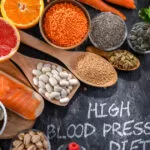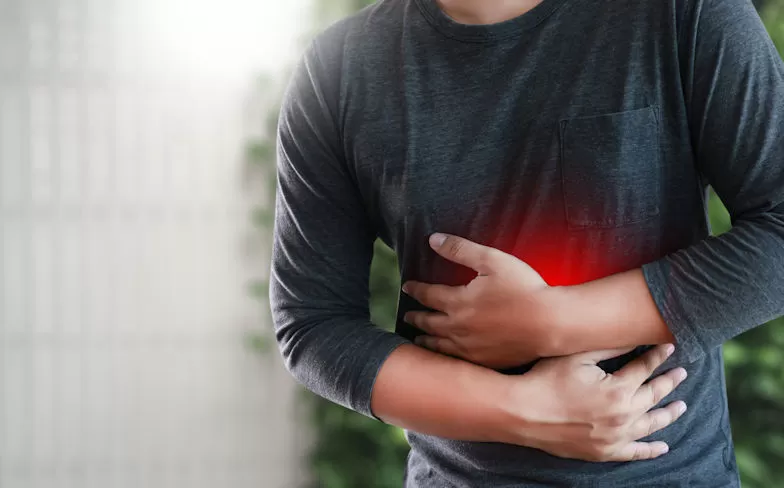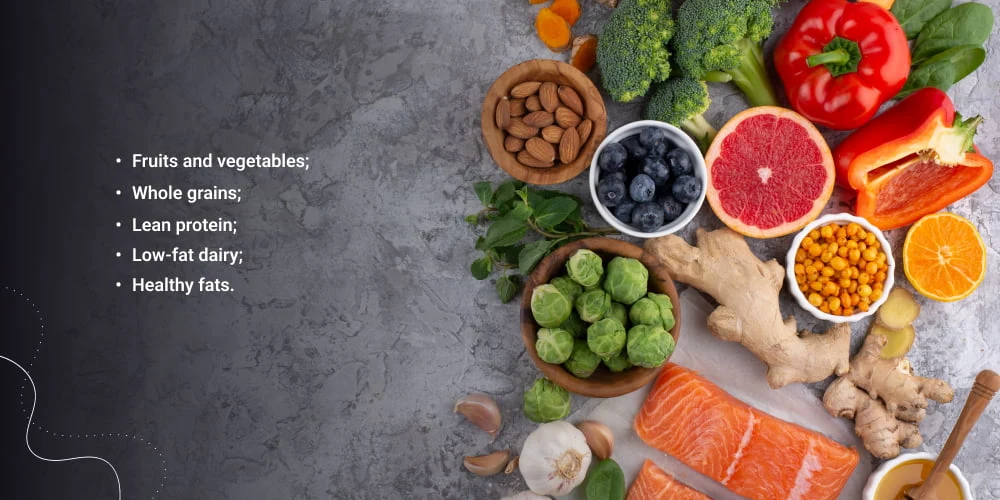Here’s How to Get Rid of Heartburn Fast
Before we talk about how to get rid of heartburn fast, understand that the term “heartburn” is indeed a misnomer, as it doesn’t involve the heart at all.
Rather, it refers to a sensation that arises when stomach acids reflux into the esophagus, the tube connecting the throat and the stomach.
Despite its misleading name, heartburn has earned its moniker due to the resemblance of its symptoms to those of a heart attack.
When stomach acids flow back into the esophagus, the resulting discomfort is often described as heartburn. The sensation typically manifests as a burning pain located just beneath the breastbone or in the chest area. This discomfort can radiate upward, sometimes reaching as far as the jaw.
Symptoms tend to worsen during the evening hours, exacerbate when bending over, and intensify when lying down.
In addition to the characteristic pain, heartburn may also present other unpleasant symptoms. Individuals experiencing heartburn may notice a bitter or acidic taste in their mouth, often accompanied by a foul sensation. These accompanying symptoms contribute to the overall discomfort and distress associated with heartburn episodes.
Causes of Heartburn
Heartburn can stem from a variety of underlying factors, each contributing to the dysfunction of the lower esophageal sphincter (LES), a crucial muscular valve situated between the esophagus and the stomach.
When this valve fails to operate properly, it can lead to the reflux of stomach acids into the esophagus, triggering the uncomfortable burning sensation characteristic of heartburn.
One primary cause of heartburn is the malfunctioning of the LES. Normally, this valve opens to permit the passage of food or the release of burps. However, in instances where it opens too frequently or fails to close tightly, stomach acids can escape into the esophagus, inducing heartburn.
Overeating exacerbates the likelihood of LES malfunction. The act of overindulgence places undue pressure on the stomach, potentially causing the valve to open inappropriately.
Similarly, conditions such as obesity, pregnancy, and constipation can exert added pressure on the stomach, further contributing to LES dysfunction and subsequent heartburn episodes.
Moreover, certain dietary choices can exacerbate heartburn symptoms. Foods that stimulate increased stomach acid production or prompt relaxation of the LES are often implicated.
Culprits include acidic fruits like tomatoes and citrus, pungent vegetables like onions and garlic, caffeinated beverages, alcoholic drinks, and indulgences like chocolate. The consumption of these items can heighten the likelihood of LES dysfunction and exacerbate heartburn discomfort.
Overall, understanding the multifaceted causes of heartburn is essential for implementing preventive measures and managing symptoms effectively.
By addressing contributing factors such as overeating, dietary choices, and underlying health conditions, individuals can mitigate the frequency and severity of heartburn episodes, improving overall quality of life.
Symptoms of Heartburn and How To Get Rid of Heartburn Fast
Symptoms of heartburn encompass a spectrum of discomforts, often characterized by:
- Burning Sensation or Chest Pain: A notable burning sensation or pain in the chest region, typically experienced post-meals and sometimes occurring during nighttime rest.
- Exacerbation with Positional Changes: Pain intensity may escalate when lying down or bending over, exacerbating the discomfort associated with heartburn.
- Bitter or Acidic Taste: Individuals experiencing heartburn may detect a bitter or acidic taste lingering in the mouth, adding to the overall discomfort.
These symptoms often manifest due to various triggers and risk factors, including:
- Dietary Choices: Certain foods and beverages, such as spicy dishes, acidic foods, alcohol, and caffeine, are recognized culprits in triggering heartburn episodes.
- Weight and Pregnancy: Being overweight or pregnant can heighten susceptibility to heartburn, increasing the likelihood and severity of symptoms.
- Positional Influence: Heartburn symptoms may intensify when lying down or bending over, further complicating comfort levels.
- Lifestyle Modifications: Implementing lifestyle changes, such as weight management, smoking cessation, and refraining from consuming meals close to bedtime, can play a pivotal role in managing and mitigating heartburn discomfort.

Managing Heartburn
By recognizing these symptoms and addressing potential triggers and risk factors, individuals can adopt proactive measures to alleviate heartburn and enhance overall well-being.
Managing heartburn encompasses a dynamic timeline, influenced by individual body chemistry, frequency of occurrence, and underlying conditions. Here’s an overview of the timeline and steps involved in managing heartburn:
Short-Term Relief (Minutes to Hours):
- Heartburn episodes can range from fleeting discomfort lasting a few minutes to lingering sensations persisting for several hours.
- Pregnant women commonly experience heartburn, which may fluctuate in duration and intensity.
Occasional Heartburn:
- Infrequent bouts of heartburn may not pose significant concerns and can often be managed with lifestyle modifications and over-the-counter medications.
- Implementing dietary adjustments, such as avoiding trigger foods, and using antacids or H2 blockers, can provide relief from sporadic heartburn episodes.
Chronic Heartburn and GERD:
- Recurrent heartburn may signal Gastroesophageal Reflux Disease (GERD), necessitating attention to prevent complications and improve quality of life.
- Persistent heartburn can interfere with daily functioning and may warrant medical evaluation to address underlying causes and prevent progression to more severe conditions.
Potential Complications of Untreated GERD:
- Chronic GERD can lead to complications such as:
- Chronic cough
- Esophageal ulcers
- Laryngitis
- Barrett’s esophagus
- Esophageal cancer
Diagnostic Testing:
- If chronic GERD is suspected, diagnostic tests such as upper endoscopy, 24-hour pH monitoring, and impedance-pH testing may be recommended to assess esophageal pH levels and detect reflux episodes.
- Proton pump inhibitor (PPI) trials involve administering medications to alleviate symptoms and assess response, aiding in the diagnosis of GERD.
Avoiding Barium Swallow:
- Barium swallow, once a common diagnostic tool, is now less favored due to its limited accuracy and potential risks.
Treatment and Management (how to get rid of heartburn fast):
- Treatment strategies for GERD may involve lifestyle modifications, medication management, and, in severe cases, surgical interventions.
- Lifestyle changes, including weight management, dietary adjustments, and elevation of the head during sleep, can help alleviate symptoms and reduce reflux episodes.
- Medications such as proton pump inhibitors (PPIs), H2 blockers, and antacids may be prescribed to manage symptoms and prevent complications.
Ongoing Monitoring and Follow-Up:
- Individuals with GERD require ongoing monitoring to assess treatment effectiveness, address symptom fluctuations, and detect any complications or disease progression.
By understanding the timeline of heartburn management (how to get rid of heartburn fast), individuals can take proactive steps to address symptoms promptly, prevent complications, and improve overall quality of life. Regular communication with healthcare providers is essential for personalized treatment and long-term management of GERD.
Seeking medical attention is imperative if you experience the following symptoms associated with heartburn:
- Frequent Occurrence: If you endure heartburn episodes more than twice a week, it warrants evaluation by a healthcare professional to assess underlying causes and devise an appropriate management plan.
- Swallowing Difficulties: Difficulty swallowing, also known as dysphagia, can signify potential complications or underlying conditions requiring medical investigation and intervention.
- Ineffectiveness of Over-the-Counter Medications: If over-the-counter medications fail to alleviate heartburn symptoms or provide only temporary relief, it indicates the need for further evaluation and possibly prescription-strength treatments.
- Persistent Vomiting or Nausea: Continuous vomiting or nausea accompanying heartburn may indicate complications such as severe reflux or underlying gastrointestinal disorders, necessitating medical assessment and management.
- Unexplained Weight Loss: Significant weight loss attributed to a decreased appetite or difficulties in eating, especially in the absence of intentional dietary changes, warrants prompt medical attention to rule out serious underlying conditions.
Consulting a doctor under these circumstances is crucial for accurate diagnosis, appropriate treatment, and prevention of potential complications associated with heartburn and underlying conditions.
Early intervention can significantly improve outcomes and enhance overall well-being.
Tips To Help Mitigate Heartburn Discomfort (how to get rid of heartburn fast)
Managing and alleviating heartburn symptoms can be achieved through various lifestyle adjustments and home remedies. Here are some tips to help mitigate heartburn discomfort:
- Wear Loose Clothing: Opt for loose-fitting clothing to reduce pressure on the abdomen and minimize discomfort.
- Apple Cider Vinegar: Dilute apple cider vinegar in water and sip it to balance excess stomach acid due to its alkalizing effect.
- Ginger Tea: Incorporate ginger tea into your routine, as ginger is known to soothe heartburn and aid digestion.
- Baking Soda: Mix baking soda with water to neutralize stomach acids and provide relief from heartburn symptoms.
- Elevate Upper Body: Elevate your upper body while sleeping to prevent acid reflux from reaching the esophagus.
- Chew Gum: Chewing gum stimulates saliva production, which helps dilute stomach acids and reduce heartburn.
- Weight Management: If overweight, losing excess weight can alleviate pressure on the abdomen and reduce the occurrence of heartburn.
- Review Medications: Check if any medications you’re taking may be causing heartburn, such as antibiotics, mineral supplements, or painkillers.
- Quit Smoking: Smoking can exacerbate heartburn symptoms, so quitting smoking can help alleviate discomfort.
- Choose Low-Impact Exercises: Opt for low-impact exercises to minimize abdominal pressure and reduce the risk of heartburn.
- Cold Milk and Ice Cream: Drink cold milk or eat ice cream to neutralize stomach acids and soothe heartburn symptoms.
- Buttermilk: Consume buttermilk to reduce lactic acid in the stomach and alleviate heartburn discomfort.
- Almonds: Incorporate almonds into your diet, as they act as natural antacids and help neutralize stomach acids.
- Ensure Adequate Sleep: Lack of sleep can exacerbate heartburn symptoms, so prioritize getting enough restful sleep.
- Bananas and Apples: Eat bananas or slices of apple to combat heartburn, as they contain natural antacids that help neutralize stomach acids.
By implementing these lifestyle adjustments and incorporating these home remedies into your routine, you can effectively manage and alleviate heartburn symptoms, improving your overall comfort and well-being.
Managing heartburn through lifestyle changes can significantly alleviate symptoms and improve overall quality of life. Here are some effective strategies to incorporate into your daily routine:
- Regular Exercise: Engage in regular physical activity, as exercise has been shown to improve heartburn symptoms and overall digestive health.
- Limit Fat Intake: Reduce consumption of fatty and fried foods, as they can exacerbate heartburn symptoms.
- Avoid Eating Before Bed: Refrain from eating large meals or snacking close to bedtime, and maintain an upright posture while eating to prevent reflux.
- Identify Trigger Foods: Identify and avoid foods that commonly trigger heartburn, such as caffeine, sugary products, chocolates, soft drinks, tomatoes, and citrus fruits.
- Quit Smoking and Limit Alcohol: Smoking and excessive alcohol consumption can aggravate heartburn symptoms, so quitting smoking and moderating alcohol intake can help alleviate discomfort.
- Review Medications: Consult your doctor to review any medications you are taking, as certain medications may contribute to heartburn symptoms.
- Manage Pregnancy-Related Heartburn: During pregnancy, opt for smaller, more frequent meals, and avoid fatty and spicy foods. Stay upright after eating and consider taking antacids under medical guidance.
- Antacids and Medications: Keep antacids, proton-pump inhibitors, and histamine-2 blockers on hand for occasional relief, but use them sparingly due to potential side effects.
In conclusion on how to get rid of heartburn fast, lifestyle changes play a crucial role in managing heartburn effectively. By identifying triggers, making dietary adjustments, and adopting healthy habits, many individuals can experience significant relief from heartburn symptoms.
However, if symptoms persist despite lifestyle modifications, it’s essential to consult a healthcare professional for further evaluation and treatment.

A graduate of Computer Science and Information Management Technology. Diploma – Caregiving, Certificates – Dementia and Diabetes Awareness and Management. A researcher, blogger, songwriter, singer and acoustic guitarist. Born in an environment where natural talents such as healing are imparted at our natural birth. This natural talents of healing is the result of our genetic inheritance and the training from family environment.




















